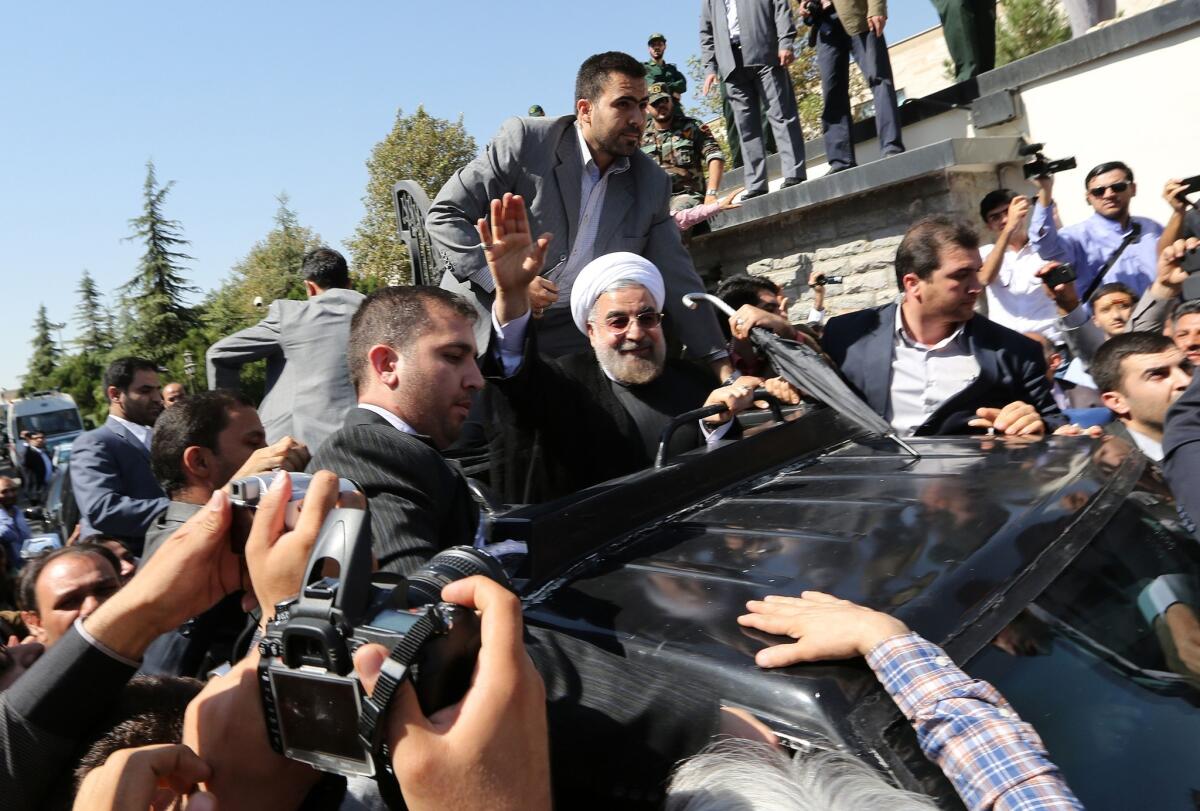Iranian journalists petition Rouhani to reopen press association

TEHRAN -- When Iran’s leader, Hassan Rouhani, held his first news conference as president-elect last summer, he pledged to reopen the country’s press association and other civil society groups that were shuttered in crackdowns during the rule of former hard-line President Mahmoud Ahmadinejad.
The House of Cinema, an alliance of moviemakers and a gathering place for Iran’s extensive film industry, reopened almost two years after it was closed.
But the doors of Iran’s press association, located on two floors in an inconspicuous building in downtown Tehran, remain locked and sealed more than four years after security forces stormed onto the premises and shut it down.
Local journalists are now increasing the pressure on Iran’s new, moderate president, who has advocated greater tolerance on cultural issues. On Monday, the liberal daily Etemad and government mouthpiece Iran carried a petition signed by some 770 journalists calling on Rouhani to speed up the reopening of the press association.
“Mr. President, many of the journalists in the country expect to see that you will honor the promise you made regarding the most important associational issue, which was to reopen the association of journalists,” the petition read.
“We hope that before the end of the second 100 days of your government, we will witness the reopening of the association, so that the breeze of prudence and hope will be injected into the body of the nation’s journalism.”
Rouhani, a long-time regime insider, won by a landslide against hard-line conservative candidates in last year’s presidential poll. At rallies leading up to his election victory, Rouhani urged throngs of enthusiastic young supporters to regain a hopeful outlook and spoke about citizens’ rights.
Farshad Qorbanpour, a 33-year-old Iranian media worker and member of the press association, said he had confidence in Rouhani and blamed an entrenched government bureaucracy, which he said was slowing down Rouhani’s efforts on the civil society front.
“There is some inertia within the government administration against President Rouhani,” he told the Los Angeles Times. “His orders and decrees are not put into practice in a short period of time.”
Aside from pledging to reopen shuttered civil society organizations, Rouhani has also denounced Internet censorship, of which the Islamic Republic is an avid practitioner.
Iran blocks access to hundreds of thousands of websites, including popular social media networks such as Facebook and Twitter. Many Iranians, however, circumvent the censors by using proxy servers.
Rouhani has argued that web censorship — known here as “filtering’’ — will only increase distrust between the people and the government. And it doesn’t work, according to Rouhani.
“I wish the supporters of filtering could explain how they have succeeded in limiting people’s access to the news,” Rouhani asked last year in an interview with the Iranian youth magazine Chelcheragh.
The new president has a tough road ahead him ub trying to appease different factions. But Qorbanpour, the media worker, says he remains “hopeful” that the locks of the press association will be unsealed before the new Iranian year begins in March.
Special correspondents Mostaghim reported from Tehran and Sandels from Beirut.
More to Read
Sign up for Essential California
The most important California stories and recommendations in your inbox every morning.
You may occasionally receive promotional content from the Los Angeles Times.









